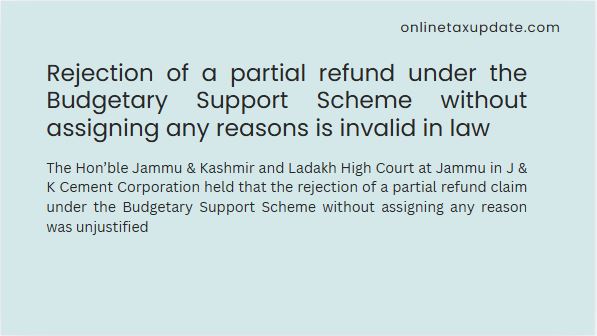Whether demand can be confirmed if the petitioner fails to prove the actual movement of goods?
Yes, the Honorable High Court of Allahabad in case of M/s. Anil Rice Mill vs. State of UP and 2 Others (WRIT TAX No. – 886 of 2023 dated 14.08.2024) dismissed the writ petition filed by the petitioner stating that the primary responsibility of claiming the benefit is upon the dealer to provide and establish the actual physical movement of goods, genuineness of transactions, etc. and if the dealer fails to prove the actual physical movement of goods, the benefit of ITC cannot be granted. The Honorable Court relied on the judgment of the Honorable Supreme Court in the case of State of Karnataka vs. M/s Ecom Gill Coffee Trading Private Limited (2023), which reinforces the principle that the burden of proving the legitimacy of an ITC claim lies with the purchasing dealer. The Honorable Court observed that the petitioner has only brought on record the tax invoices, e-way bills, and payment through the banking channel, but no such details such as payment of freight charges, acknowledgment of taking delivery of goods, toll receipts and payment thereof has been provided. Thus in the absence of these documents, the actual physical movements of goods and genuineness of transportation as well as the transaction cannot be established and in such circumstances, further no proof of filing of GSTR-2A has been brought on record, consequently, the authorities rightly initiated proceedings against the petitioner. In view of the facts as stated above, no interference is called for by this Court in the impugned orders.
Author’s Comments
Where self-assessment is challenged, the burden rests on the Revenue making the allegation and not on the registered person-suffering the allegation. The Burden of proof is not discharged by making the allegation. The Burden of proof is discharged only when a mountain of evidence commensurate with the nature of the allegation made is produced and appended to notice. Allegations of severe wrong-doing require proportionately substantial evidence. Evidence is not extracted of books of accounts or statements taken on-oath. Evidence is that proves something. Section 155 of the CGST Act places the burden to prove regarding “eligibility to credit” only on the taxpayer. Once, it is shown that all the conditions of section 16 are fulfilled, the taxpayer’s burden is discharged and onus shifts on the department to prove their case
In the instance case, the petitioner could have disputed the allegation stating that being a trader, if the outward supplies are accepted to be genuine then inward supplies have to be genuine. And if inward supplies are in genuine and outward supplies are accepted to be genuine, then the allegation is deeply rooted in incomplete investigation, surmise and conjecture only. The Revenue cannot approbate and reprobate on the same issue. The taxpayer must have allowed the revenue to prove their case and in the absence of evidence in support of allegations, allegations are self-defeating.
This is classic case of poor strategy by the petitioner and in coming times, other taxpayers will have to face the heat of this order.
Share this content:




Post Comment